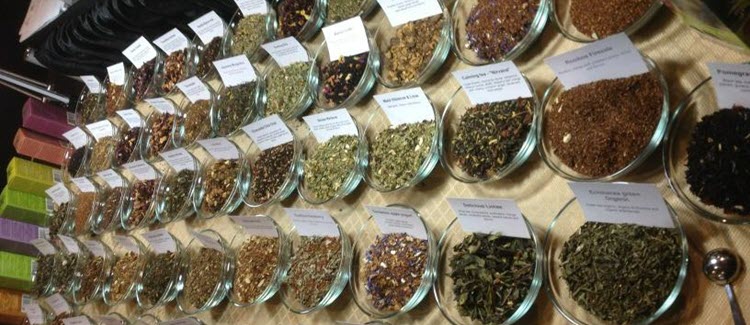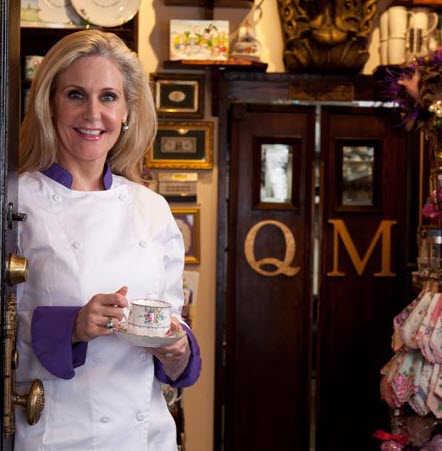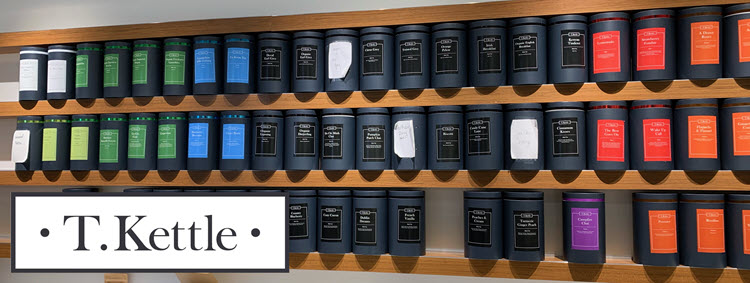Listen to the Tea Biz Podcast on iTunes | Spotify | Sounder | Stitcher
Hear the Headlines for the Week of March 19

| US Restaurant Rescue Funds Total $28.6 Billion
| EU Reviews Pesticide Rules
| Tea Theaflavin Inhibits Coronavirus Replication
| PLANT-AG is a $9 Billion Startup that Promises Field-to-Plate Traceability
Click to read this week’s in-depth Tea Price Report or listen to the summary below.
Save this permalink to hear the latest prices anytime on your phone.
Features
This week Tea Biz continues its coverage of how Japan’s tea industry successfully met the challenges of marketing tea a decade after the disastrous earthquake, tsunami and meltdown of the nuclear power plant in Fukushima.
.…. and we travel to India to discuss a pandemic pivot with Rudra Chatterjee, Managing Director of the Luxmi Group.

Pandemic Pivot
Will Direct-to-Consumer Tea Sales Catalyze the Farm-to-Cup Movement?
By Aravinda Anantharaman
2020 accelerated a shift to digital media, one that many tea producers embraced. Did this bring more customers? Did this increase sales? Is this the catalyst the farm-to-cup movement needed? Tea Biz posed these questions to Rudra Chatterjee, managing director of century-old Luxmi Group. Luxmi auctions millions of kilos of tea annually to a small cadre of buyers purchasing 20,000 kilo container lots. Last year the company quickly adapted to selling 250-gram packets of tea directly to thousands of consumers, a pivot that Chatterjee says brought significant benefits. Read more…

Meltdown Led to Tea Industry Realignment in Japan
By Dan Bolton | Part 2 of 2
Radioactive fallout from the Fukushima Daiichi meltdown descended in plumes far north and east of Japan’s tea growing region. Losses were significant in Shizuoka due to factory closings where lightly contaminated tea was concentrated. Japan’s tea growing regions were not impacted and continued to evolve, initially foregoing exports in favor of the domestic market. That changed beginning in 2016 as exports increased from 4,000 to 5,100 metric tons. Valuation peaked in 2018 at 1.5 billion yen, largely because of the out-sized success of matcha, which accounted for 43% of exports, according to the Japanese Tea Export Production Council
That changed beginning in 2016 as exports increased from 4,000 to 5,100 metric tons. Valuation peaked in 2018 at 1.5 billion yen, largely because of the out-sized success of matcha, which accounted for 43% of exports, according to the Japanese Tea Export Production Council. Production remains level at 80,000 metric tons, down 20 percent from all-time highs. Export levels plateaued and tea value is declined during the pandemic year. Testing continues as a precaution but the tea from Japan is safe when accompanied by a food-safety certificate.
Jason Eng lives in Japan and works in business development for Kametani Tea, a green tea blender, custom roaster, and matcha company that processes more than 1,000 metric tons annually for Japan’s food and beverage companies.
Japanese Resilience and Resolve, Part 2: The story of Kitaha Tea, a company reborn after the T?hoku Quake.
![]() Listen to Japanese Resilience and Resolve, Part 1: The story of the T?hoku Quake Tea Relief Caravan. | Click here to see photos of their adventure.
Listen to Japanese Resilience and Resolve, Part 1: The story of the T?hoku Quake Tea Relief Caravan. | Click here to see photos of their adventure.
Tea News you Need to Know
US Restaurant Rescue Funds
The $1.9 trillion American Rescue Plan signed into law last week includes $28.6 billion to rescue US restaurants. The funds provide debt-free relief for small and mid-sized restaurants. Applications for tea-themed restaurants, small café chains, and tea rooms will be accepted by the Small Business Administration beginning in April. Funding eligibility includes franchisees with fewer than 20 locations that are not publicly traded.
The president of the National Restaurant Association said the grants “will inject a much-needed stimulus along the supply chain to begin to balance the economic damage done.” The rescue plan extends moratoriums until September, allocating $5 billion to help business tenants struggling to pay rent. Government funded grants are capped at $10 million per restaurant group and $5 million per location. Grants are calculated as the difference in average monthly revenue earned in 2019 minus average monthly revenue earned in 2020 multiplied by 12.
Biz Insight – Market research firm IRI in Chicago writes that consumer habits formed during the pandemic may be here to stay. One clear winner is retail loyalty “points” programs. Eighty percent of Generation Z subscribe to FREE grocery loyalty programs and 79 percent of Generation X. A majority of Millennials (68%) prefer PAID online loyalty programs. Overall 51 percent of respondents cited shopper loyalty programs as “somewhat influential” when deciding where to shop with 22 percent indicating loyalty programs are “extremely influential” when deciding where to shop.
EU Reviews Pesticide Rules
Since pesticides can have harmful effects on the environment and human health, they are strictly regulated by the European Union. In recent years the EU adopted a Green Deal directive that seeks to reduce the use and risk of chemical pesticides and herbicides. The EU’s subsequent “Use of Pesticides” (SUD) rules for use apply to both ag professionals and to the public but they are not legally binding. In January, the European Commission identified “significant shortcomings in the implementation, application and enforcement” of the SUD directive by member states, launching a period of public consultation to determine whether the rules should be mandatory. The SUD directive could result in a 50 percent reduction of chemical pesticides, according to some estimates. Commissioners made it clear the SUD is not enforceable as law unless adopted by parliaments of the member states. The comment period ends April 12
Biz Insight – In East Africa growers are experiencing the worst locust outbreak in 70 years. Ambitious locals are capitalizing on the fact that locusts become lethargic after dark and easy prey. In February the Bug-Picture, a Kenyan firm that processes insects into animal feed, bought 2.4 metric tons of locusts. Teams of 25 to 30 workers sustainably and organically eliminate up to 400 kilos of the crop-killing pests between sunset and sunrise daily, earning $5 for every 10 kilos. No pesticides required.
Tea Theaflavin Inhibits Coronavirus Replication
A healthy diet and plenty of sleep are best at boosting immunity from the coronavirus, but those stricken with COVID-19 may benefit from also drinking tea.
Researchers at Tocklai TRA, a branch of India’s Tea Research Association, have demonstrated the “virus inhibiting benefits of black tea,” writes Joydeep Phukan who manages the research center in Jorhat, Assam. Citing studies published in the Journal of Biomolecular Structure and Dynamics and in the Journal Frontiers in Immunology, Director Dr. A.K. Barooah, writes that variants of the bio-active compound theaflavin act on multiple targets of the coronavirus affecting the stability and blocking the binding sites of viral proteins.
The formation of specific bonds “inhibit replication of the virus.” He said that harnessing the health properties of tea will pave the way for “extensive use of bio-actives that will immensely help to popularize black tea in India.”
PLANT-AG is a $9 Billion Startup that Promises Field to Plate Traceability
Investors, confident that traceability is a bankable attribute, have invested $8 billion in public-private bonds with an additional $800 million in cash to fund PLANT-AG – a US based open-source, blockchain documented vertical farming infrastructure project. IBM’s Food Trust software will manage gigabytes of logistics, cultivation, and processing data on greenhouse-grown leaf lettuce, strawberries and tomatoes, basil, kale, and blueberries.
Half of the fresh fruit and a third of vegetables sold in grocery stores is imported, often traveling along a month-long supply chain. PLANT-AG intends to shorten the chain to three days. Founder Karim Giscombe is building greenhouses no further than eight hours from urban centers. Harvesting at 4 a.m. means the company will eventually be able to provide a third of Americans fresh produce within 72 hours.
Biz Insight –Consumers scanning PLANT-AG product labels with their phone will be able to see where the food is grown, making tracebacks in the event of contamination practical and quick and leading to greater accountability at origin, addressing not just food safety but sustainable practices and labor conditions. Read a full account by Cliff Rainey in this month’s Fast Company magazine.
Copy this link to share this Tea Biz BLOG|CAST with your colleagues
View the Tea Biz Newsletter Archive
https://teabiz.sounder.fm/episode/news-01212021
Subtext
Avoid the chaos of social media and start a conversation that matters. Subtext’s message-based platform lets you privately ask meaningful questions of the tea experts, academics and Tea Biz journalists reporting from the tea lands. You see their responses via SMS texts which are sent direct to your phone. Visit our website and subscribe to Subtext to instantly connect with the most connected people in tea.
Podcast Players
| ITunes | Spotify | iHeart Radio | Stitcher |
| Google Podcast | Amazon Podcasts | Tune In | Sounder |
Subscribe and receive Tea Biz weekly in your inbox.






















